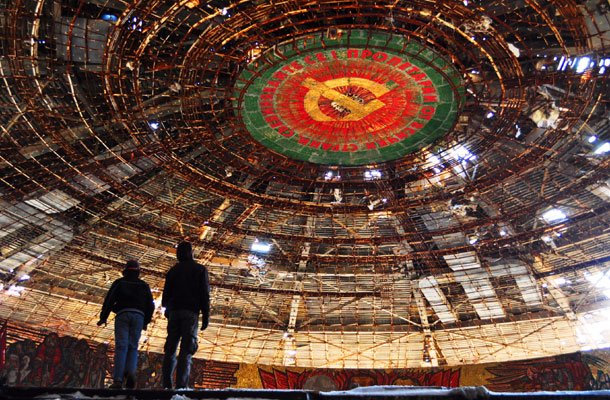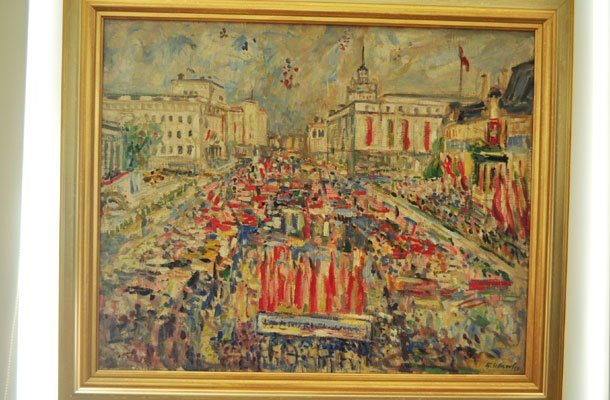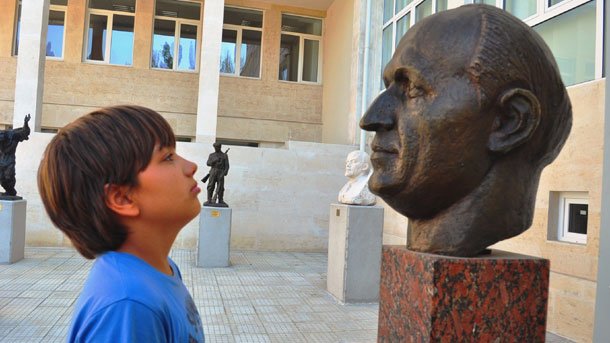
Young Bulgarians have a mixed-up, at times completely erroneous idea of our totalitarian past, indicate data from a national survey conducted recently. It shows that to some of them notions such as the Iron Curtain, communist dictatorship and concentration camps mean nothing. Some of the respondents even state that GULAG is a search engine or a kind of dish, probably on the analogy of the Hungarian goulash. And though they do not know what communism is, many say that if they were given a choice they would not mind living at the time of former communist head of state Todor Zhivkov instead of in modern society, rent asunder by economic crises, mass protests and bleak prospects.
Undoubtedly, one of the causes of the unbelievable ignorance of the generation born after 1989, a year crucial to democracy in the country, is the contents of the history text books, where the study of our 45-year long communist past is downsized to a few pages. Not to mention the fact that the dates and the events from this controversial period in the country’s history are presented without any comment or analysis in the most tedious and dull way possible. Moreover it is not at all clear why none of the questions from the syllabus covering the period of communism in this country has found its way into the matriculation or university entrance exams. Knowing all this we should not be surprised by the hazy, frequently romantic notions the young have of the years of totalitarianism, According to the national survey 14 percent describe the 1944-1989 period as “democratic” while 40 percent state that Todor Zhivkov upheld the values of freedom and democracy. A great many young people in Bulgaria have never even heard of the omnipotent, all-seeing eye of the State Security. Obviously, they are much more inclined to believe the stories they have heard from their parents about the cheap central heating and the free kindergartens than the scanty information from their text books about State Security, censorship, labour camps, political repressions.

© Photo: Veneta Nikolova
The children of the transition period are also living in “sweet ignorance” when it comes to the monstrous crimes of the 20th century. For example, 80 percent wonder what GULAG means, 41 percent have never heard of the Belene concentration camp in Bulgaria, and a whole 42 percent do not know that Hitler and Stalin are dictators. By way of comparison – young people in Romania are much better informed. A special text book on communism, complete with a DVD and films, reveal to secondary school students interesting, at times horrific facts about the time of Romanian dictator Ceausescu.
In 2008, Bulgaria, along with six other former socialist countries signed the so-called Prague Declaration on European Conscience and Communism. The document condemns the brutality of the repressive regime, but also demands that the countries in question correct their history text books so that children may learn about communism as they do about Nazism. The document is, of course, advisory from a moral and ethical point of view. That is the reason why, even though it has been six years since this country signed it, no steps have been taken in this direction. The communist regime and its manifestations are still taboo in Bulgaria’s system of education. Not to mention the fact that Bulgaria is the only country of the former Eastern bloc that does not have a Museum of Communism that would help expose the aberrations of the social experiment that lasted 45 whole years. Why would that be?

© Photo: Veneta Nikolova
“In the final analysis, shedding light on the communist past is an exercise of the conscience”, said Romanian political analyst Dr. Raluca Grosescu during an international conference on the subject organized in Sofia. To what an extent do we, Bulgarians have a conscience and memory when it comes to the recent past – the answer to this question becomes apparent when we take a look at the young and how well informed they are. And not just the young. It is true that across Eastern Europe there are people who cast a nostalgic glance back to the times when all people undoubtedly had all kinds of social acquisitions, the Party with a capital P took care of everything and all were equal, at least in words. Dr. Grosescu says that in Romania too a large portion of the older generation is nostalgic about the socialist past. “Nonetheless, no one would dream of putting up monuments to Ceausescu or billboards of him at the roadside, as has been the case in Bulgaria. That is absurd!” says the Romanian political analyst commenting on the celebrations throughout this country of the birth anniversaries of Todor Zhivkov, who has become a veritable icon to the nostalgically minded Bulgarians. The controversial interpretation of the totalitarian past, the misconstrued facts and the politicization of this question as a whole confuse young people. Unfortunately, their sources of information about the past boil down to the stories told them by their grandparents, a few pages in the history text book and,,, the Internet where they can find anything to suit any interpretation.

© Photo: Veneta Nikolova
But unless we make sense of our communist past, how can we make sense of the present so that we can move on, more and more Bulgarians have been asking themselves. To what an extent is the ignorance of the young due to a trivial or unwitting oversight in the system of education that could easily be put to rights? Instead of trying to give an answer to this question why not read George Orwell’s 1984 – “He who controls the past controls the future. He who controls the present controls the past.” Who controls the present is a question everyone should answer for themselves!
English version: Milena Daynova
The topic of quality in preschool and school education is of great importance for Bulgaria, but there is no quality standard in the Pre-school and School Education Act. Its creation is a task of the Ministry of Science and Education..
For the 21st consecutive year, Simitli is hosting one of the largest masquerade festivals in Bulgaria. Originally a local entertainment, "Simitli - The Ancient Land of Kukeri" has become one of the most important kukeri events in the country. Over the..
Romania becomes the largest natural gas producer in the EU Romania was the largest natural gas producer in the EU in 2024 and in 2027 the country will double its production thanks to the Neptun Deep project. This was..
The topic of quality in preschool and school education is of great importance for Bulgaria, but there is no quality standard in the..

+359 2 9336 661
